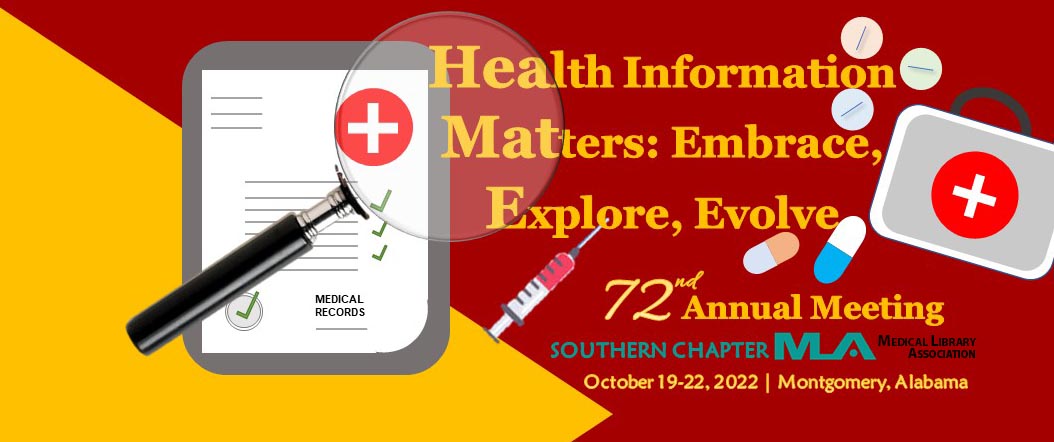
Continuing Education CoursesWednesday, October 19, 2022 |
In-Person CE Course 1: 8:00am - 12:00pm Title: Data Literacy for the Busy Librarian Description: This 4-hour, in-person class looks at foundational data management skills with an emphasis on key topics relating to Data Management Plans (DMPs), understanding standards and metadata in a biomedical context, identifying appropriate biomedical data repositories, understanding data sharing and data citation, and knowing and applying best practices in data visualization. Learning Objectives: Upon completion of this class, students will be able to:
Instructors: Elizabeth Roth & Debra Trogdon-Livingston MLA CE Credits: 4 Seats: 25 CANCELLED In-Person CE Course 2: 1:00pm - 5:00pm Title: Moving Beyond the Solidarity Statements: Allyship in Libraries Description: Being antiracist is not about who you are; it’s about what you do. Unpacking what it means to be an antiracist information professional is a personal journey, anchored by critical self-reflection on the impact of racist systems and structures at home, work, and local communities. This four-hour course is a call to action for information professionals who are committed to taking action towards becoming anti-racist.Learning Objectives: At the conclusion of this session, participants will be able to:
Instructors: Kelsa Bartley, Michael Fitts, Shannon Jones & Tamara Nelson MLA CE Credits: 4 Seats: 25 |
Virtual CE CoursesVirtual CE Course 1: 10:00am - 11:30am Title: Teaching Adult Learners Description: Do you work with adults at the reference desk? Or teach instruction sessions to adults? Understanding why and how adults learn is important in all learning environments. In this presentation you will be introduced to andragogy and heutagogy, two theories for instructing adult learners. The theories provide helpful frameworks for understanding why adults approach learning in ways that they do. Once the frameworks are understood, concrete ideas about how to create instruction for adults can be determined from both theories. You will walk away from this presentation with practical tools for working with adults. Learning Objectives: Attendees will be able to:
Instructor: Lauren Hays, Ph.D. MLA CE Credits: 1.5 Seats: 25 Virtual CE Course 2: 2:00pm - 3:00pm Title: Learn to Love Data Planning: DMPTool Basics Description: Starting January 2023, the NIH will require funded researchers to submit a plan outlining how scientific data from their research will be managed and shared. A well thought out data management plan helps researchers plan for the unexpected, increase efficiency, and aid in reproducibility. The DMPTool is a free tool that walks users through creating competitive, comprehensive data management plans. The webinar will guide participants in understanding data management plan basics, creating a DMPTool profile and exploring available templates and planning resources. Learning Objectives:
Instructor: Katie Pierce Farrier MLA CE Credit: 1 Seats: 25 |
Funding for continuing education is provided by NNLM/SEA Professional Development Award. |
Contact Us Code of Conduct SC/MLA Home 2022 Annual Meeting Sponsors Southern Chapter of the Medical Library Association is a 501(c) non-profit organization. |